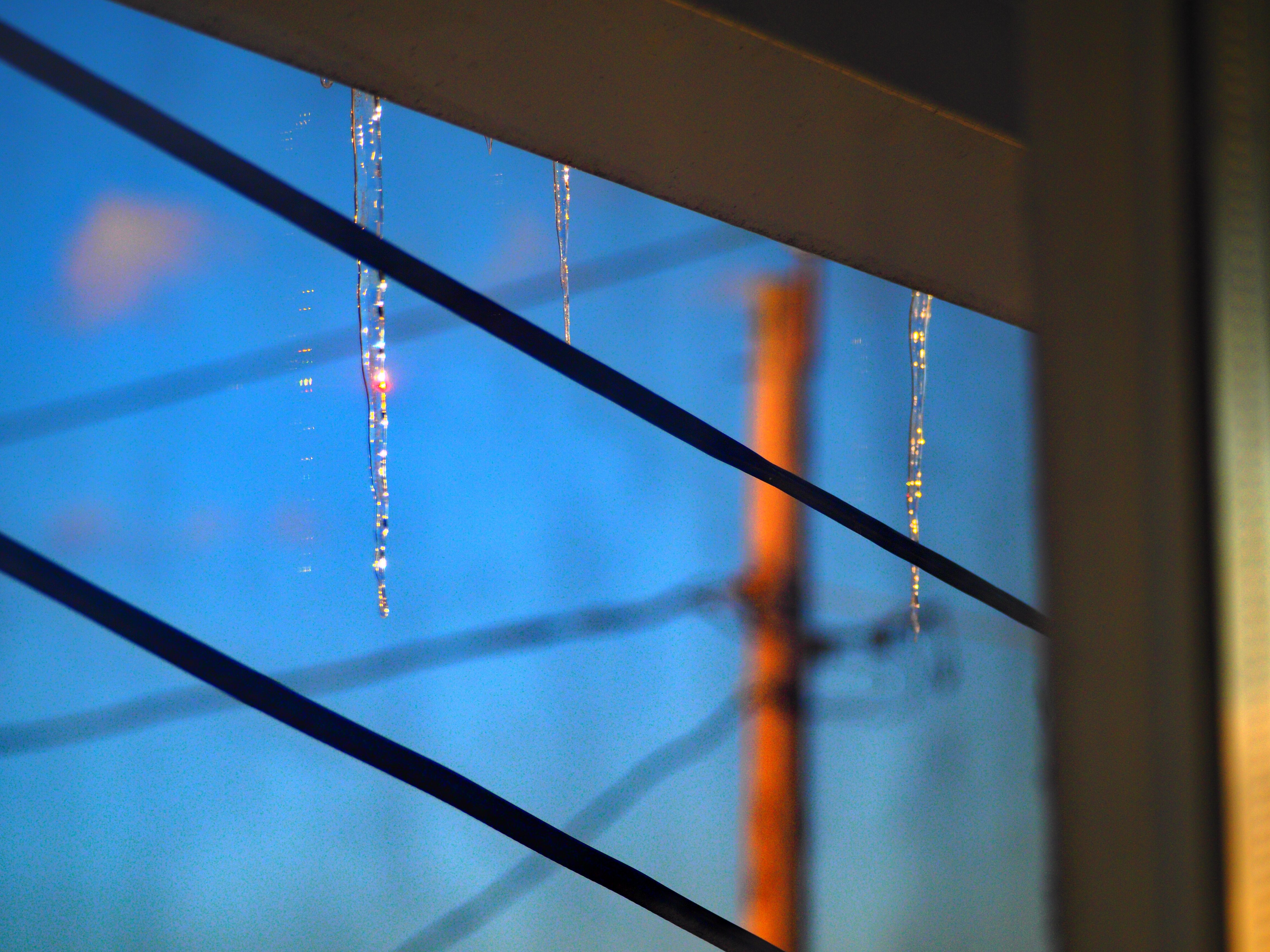-
Posts
44,789 -
Joined
Content Type
Profiles
Blogs
Forums
American Weather
Media Demo
Store
Gallery
Everything posted by LibertyBell
-

November 2020 General Discussions & Observations Thread
LibertyBell replied to Rtd208's topic in New York City Metro
This is a very stable pattern and I would go so far as to say this is the dominant weather pattern for our area (the one that lasts the longest). In all my years on the east coast that I can remember, going back to the early 80s.....this is the pattern that recurs more often than any other. -

November 2020 General Discussions & Observations Thread
LibertyBell replied to Rtd208's topic in New York City Metro
This is the very familiar late 80s early 90s type pattern we've been getting the last few winters. -

November 2020 General Discussions & Observations Thread
LibertyBell replied to Rtd208's topic in New York City Metro
In the 15-16 winter we didn't have a SE Ridge in either Jan 16 or Feb 16? Should've done better with snowfall than just the one HECS we got. -

November 2020 General Discussions & Observations Thread
LibertyBell replied to Rtd208's topic in New York City Metro
Wow, I'd be curious to see what my favorite Northern Hemisphere research station hit- Summit Camp, Greenland. It's the coldest spot in the Northern Hemisphere, as it is at the very top of the Greenland Ice Cap. -

Eta and/or Theta remnant potential Wed-Sun Nov 11-15, 2020
LibertyBell replied to wdrag's topic in New York City Metro
Chris is that 60 mph winds near SW Nassau? We had 1.30 inches of rain over the last 3 days. -

November 2020 General Discussions & Observations Thread
LibertyBell replied to Rtd208's topic in New York City Metro
This is definitely causing the lobster population to migrate north. -

November 2020 General Discussions & Observations Thread
LibertyBell replied to Rtd208's topic in New York City Metro
Never heard of this place before lol, is 49 impressive for them? -
What I want to know is why would the Indian Ocean have more weight on the NAO pattern (why is it warming more quickly?) than either the Pacific or Atlantic would? What exactly is the Indian Ocean doing and do the Pacific and Atlantic have an influence on the Indian Ocean too?
-
Is it me or did we just begin talking about the Indian Ocean a few years ago? It seems like before, say, two years ago, the Indian Ocean wasn't even talked about- as if what happened there didn't matter to global patterns?
-

November 2020 General Discussions & Observations Thread
LibertyBell replied to Rtd208's topic in New York City Metro
Yes all the extreme weather was October to December. Any idea what caused all that extreme weather and what caused the rubber band to snap around New Years? March was amazingly warm, but the 40 degree avg for Jan-Feb was also really weird. December was the most frustrating month, because despite it being wall to wall cold, snow was limited to these tiny 1-2 inch clippers once a week or so. There was a blown forecast in the middle of the month when a storm that was supposed to give us 6-8 inches of snow had a secondary form too close to the coast and it all changed quickly to rain accompanied by thunderstorms. It was the opposite bust from February 1989 when we had a prediction of 6-8 inches of snow and we got all virga instead as Atlantic City got buried with 20 inches of snow. I see 1988-89 was one of the analogs you were looking at, and I sincerely hope we dont get a repeat from that frustrating era. I thought Boxing Day 2010 was nature putting things right and making up for the February 1989 debacle. I think that storm was the greatest positive bust of my lifetime. -

November 2020 General Discussions & Observations Thread
LibertyBell replied to Rtd208's topic in New York City Metro
That was a really stormy period. I remember the October-November period had lots of extreme changes from warm to cold and back to warm and then cold again with big extremely windy storm fronts, massive severe weather outbreaks and the leaves coming down earlier than I had ever seen them before and then an extremely cold and dry December to cap it all off. Do you remember this Don? I think all the leaves came down around Halloween when we had a big windy front come through. -

November 2020 General Discussions & Observations Thread
LibertyBell replied to Rtd208's topic in New York City Metro
70s is getting boring let's shoot for 80..... -

November 2020 General Discussions & Observations Thread
LibertyBell replied to Rtd208's topic in New York City Metro
Funny thing is even with this anomalously mild November it will still only be slightly warmer than December of 2015..... -

Eta and/or Theta remnant potential Wed-Sun Nov 11-15, 2020
LibertyBell replied to wdrag's topic in New York City Metro
Wow that water vapor graph reminds me of the spike in 75+ dew points JFK experienced a few years ago -

November 2020 General Discussions & Observations Thread
LibertyBell replied to Rtd208's topic in New York City Metro
and like 8-10 inches from Atlantic City to Long Island -

November 2020 General Discussions & Observations Thread
LibertyBell replied to Rtd208's topic in New York City Metro
Newark is notorious for being inaccurate in terms of temps higher than anywhere else in the region- but not that out of whack lol. -

November 2020 General Discussions & Observations Thread
LibertyBell replied to Rtd208's topic in New York City Metro
Wow Newark is quite a bit warmer than the rest of the region. I cant find a stretch of 7 70+ days anytime in recorded history either for Central Park or Philadelphia despite a much longer period of recorded history. The max at those two sites is 5 straight days. The 7 day 70+ stretch at the end of November in 1989 must've been amazing, since we had a significant snowstorm on Thanksgiving in 1989 and then a historically cold and dry December! I actually dont remember that warm period at all, all I remember is a historic and tragic severe weather outbreak in November 1989 and then the Thanksgiving snowstorm and the extremely cold and dry December (as well as a blown snowstorm prediction and the big warm up around New Years 1990 and then warmth for the rest of the season including summer-like mid 80s in March.) -

November 2020 General Discussions & Observations Thread
LibertyBell replied to Rtd208's topic in New York City Metro
thats disappointing. I think I saw the high for the day before which was listed at 73 and assumed that was for yesterday -

November 2020 General Discussions & Observations Thread
LibertyBell replied to Rtd208's topic in New York City Metro
Thanks! It looks like they hit 73 yesterday. I had to get used to the format, as the most recent readings are listed at the top lol. Something else I noticed, a lot of the records for yesterday are from 1999 and that's one of the analogs for the upcoming winter. -
Yes the last one was in November 2001 and it was unforgettable. I thought they recurred every 33 years but looking at the historical record there have been unpredictable outbursts that occur outside of the 33 year cycle. The amazing weather is a good point too, it isn't just warm, it's been warm during the day and cold at night because of the exceptionally dry air; these are ideal desert-like viewing conditions! I even saw the thin waning crescent moon yesterday at high noon. I dont think I've ever seen it at that time before. Of course the prime time celestial viewing weather is now coming to an end. Did you see Mars the last few nights? It looks exceptionally bright probably because it is closer than it will be for a few decades. This is my favorite time of year for clear skies, M42 Orion Nebula is clearly visible, even visually and I imagine it's an amazing sight in 10x50 or larger binos. M31 Andromeda Galaxy should look amazing too.
-
Yes, I've seen them reported from Alabama to New Jersey to Quebec to Sweden! Bright fireballs and the Alabama one was called an asteroid by NASA. The one in NJ was a low flying meteoroid and the one in Sweden made it to around 15 km before disintegrating! What's going on? All unrelated to each other and not part of some outburst?
-

November 2020 General Discussions & Observations Thread
LibertyBell replied to Rtd208's topic in New York City Metro
Don I noted you didn't list JFK above, did they not hit 70 yesterday? I thought they did. -

Eta and/or Theta remnant potential Wed-Sun Nov 11-15, 2020
LibertyBell replied to wdrag's topic in New York City Metro
Maybe we could get 1-2" with this first event and then another 1-2" Sunday into Monday? -
Yes, the most extreme winter I can remember, got close to -30 in NE PA. Lots of snow and ice, we had an astounding 2 inch plus ice storm on the south shore of Long Island in January. And snow both on top of that and under it. I got to tell the difference between the different colors of snow (white), sleet (grey), and freezing rain (clear). And you needed an ice pick to break though otherwise you'd be skating down your driveway.


